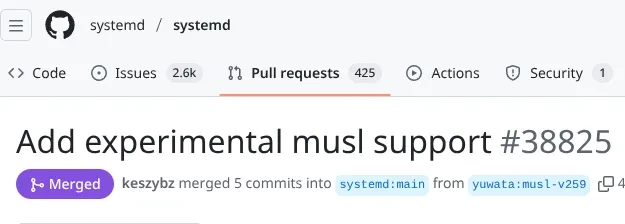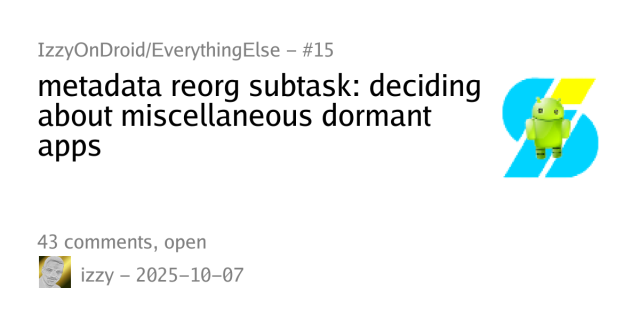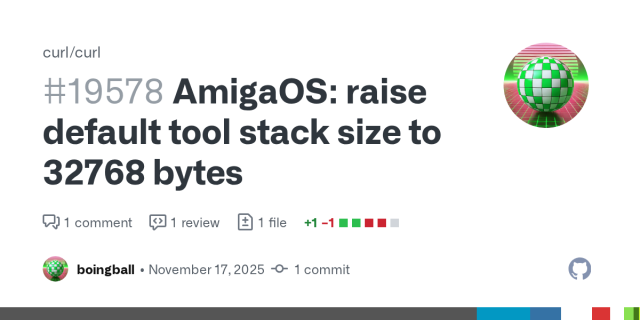systemd Lands Experimental Support For musl libc
Systemd today finally merged support for building against and using the musl libc library. This is a win for Linux distributions like postmarketOS, Alpine Linux, and others that use musl by default as their standard C library or offer it as an option...
phoronix.com/news/systemd-musl…




















Laurent Bercot
in reply to Phoronix • • •It really is a double-edged sword.
A win, because generally speaking, better interoperability is good, and making software more portable is good, and if it can improve systemd, the world will be better for it.
A win, because getting to that point proves that musl is finally, at last, being taken seriously by one of the most reluctant players in the ecosystem, so it's a sign that musl is a real, believable alternative now, and it will push more people and projects to try it out.
But also a danger, because it now means that systemd actually sees musl systems as targets. Systems that opted for musl were safe from systemd so far; maintainers were not tempted to switch to it because it was not a technically sound proposition. Now that systemd officially supports musl, no distribution is safe, and the survival of the non-systemd ecosystem now only depends on the technical judgment of distribution maintainers. Which has been subverted before, as Debian has painfully and dishonorably shown.
I would like to say I am cautiously optimistic. But I am actually terrified.
achill@{39c3,fosdem}
in reply to Laurent Bercot • • •> were safe from systemd so far
systemd is not a disease, i never understood why people act like it is.
if you own your computer, you're still super flexible on what you use as a system manager, and it just gives people the *option* to use systemd on musl systems if they want to.
nobody ever wants to force people to use systemd, but we (and I) want people to accept that it is a viable option.
TheEvilSkeleton 🇮🇳 🏳️⚧️
in reply to achill@{39c3,fosdem} • • •@fossdd I don't think people realize that 1. distributions have the last say over any dependency, including whether they should package something or not, which completely disqualifies any accusations of attempts to force people to use systemd; and 2. systemd isn't some project managed by a single company: it's comprised of individuals from different organizations.
@ska
Laurent Bercot
in reply to TheEvilSkeleton 🇮🇳 🏳️⚧️ • • •@TheEvilSkeleton @fossdd Oh, distributions have a choice. They make policy decisions all the time. They choose what to include, and what not to include, all the time, and it's a perfectly conscious choice. Not always an easy one, but a choice nonetheless.
Distributions are not powerless. As the entities actually providing software to the majority of users, they hold a pretty good amount of power. And if Red Hat, at the time, was not pushing systemd with all their might, I don't know how you would call what they were doing.
The fact that systemd is developed by a group of individuals from different organizations does not change the end output. I did not describe intent, but practical behaviour, and when faced with that behaviour, intent really does not matter.